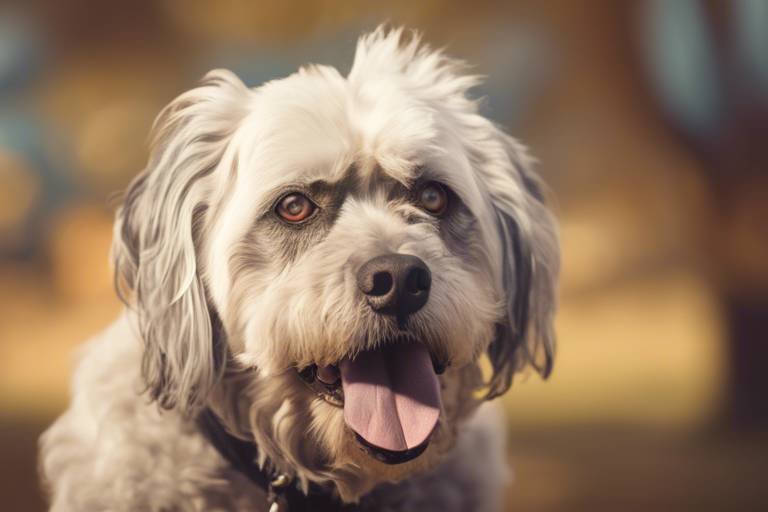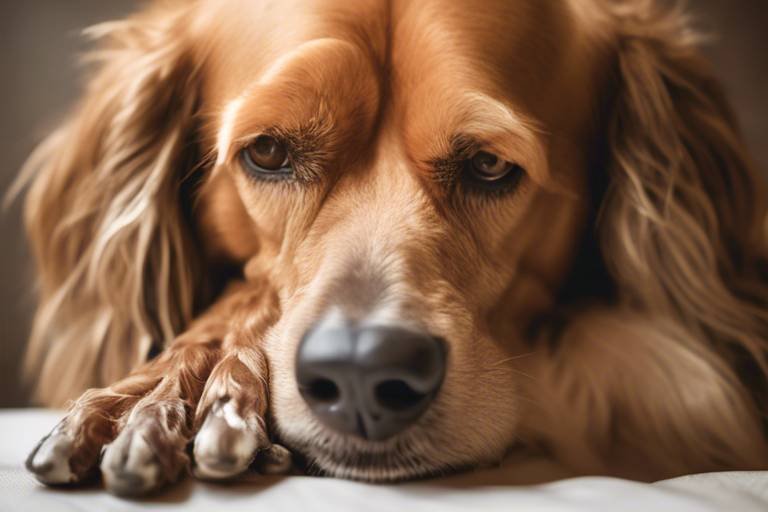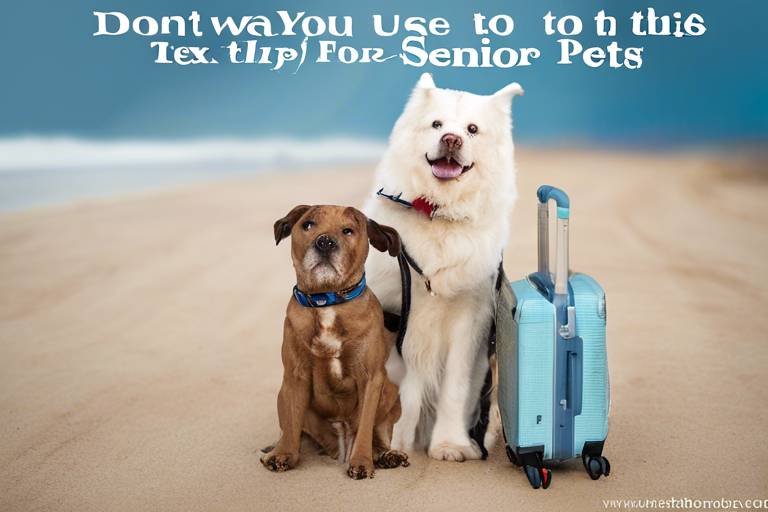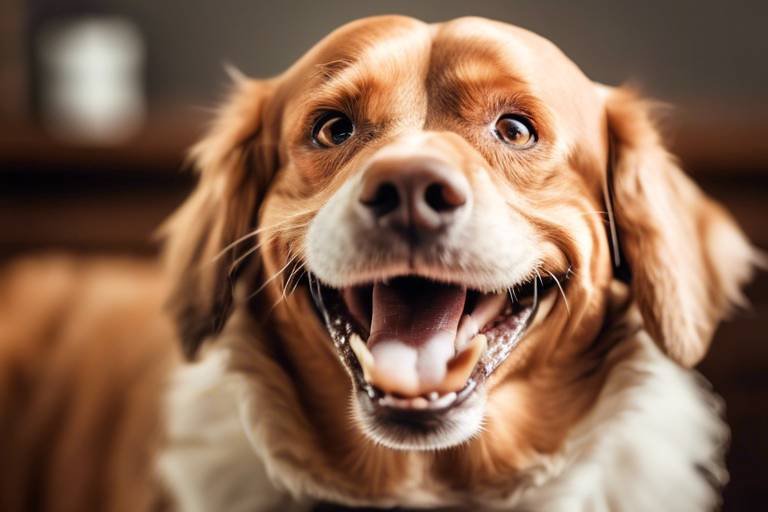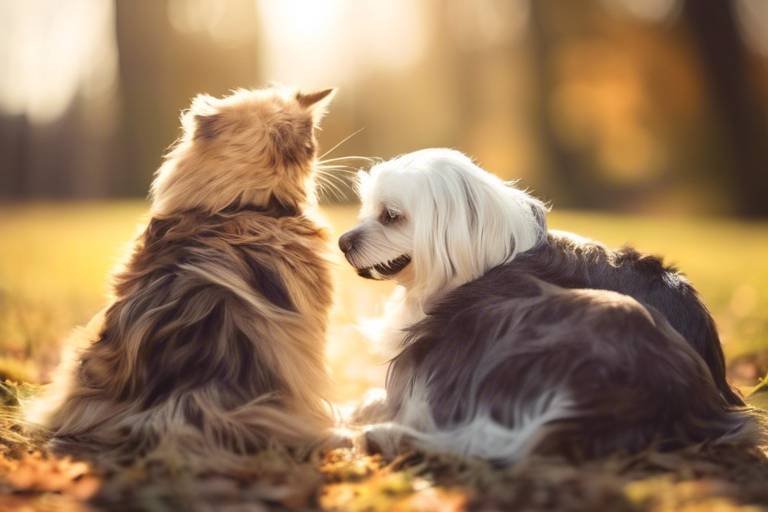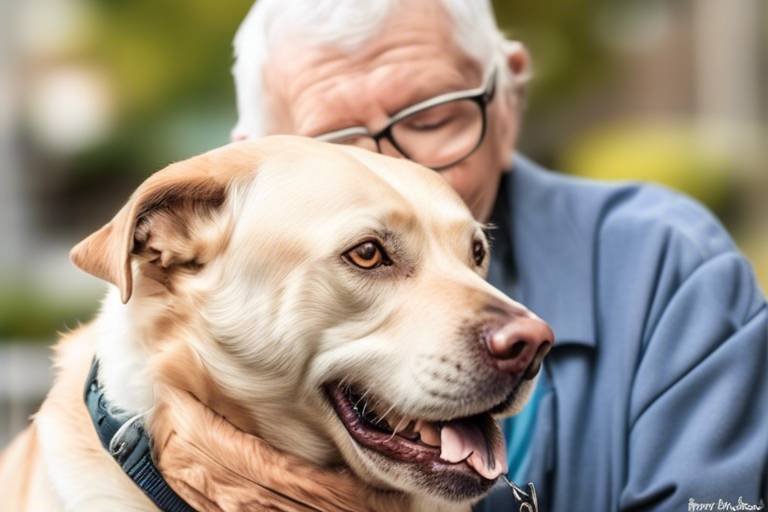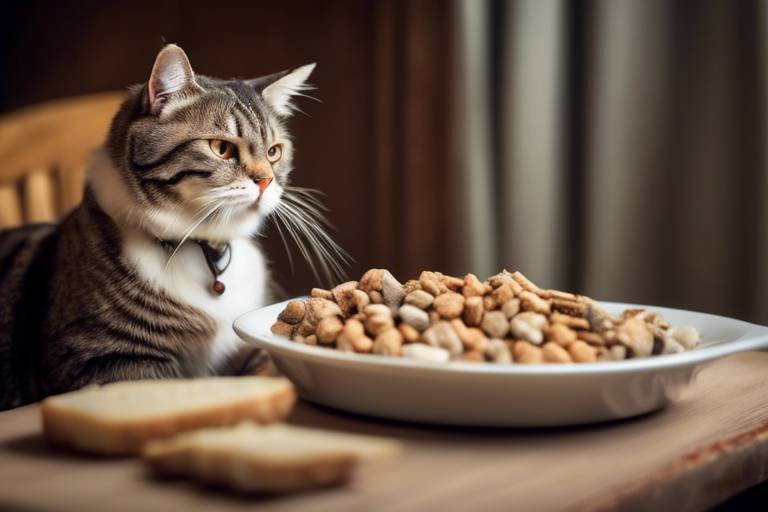Tips for Managing Stress in Senior Pets During Holidays
The holiday season is often a whirlwind of excitement, gatherings, and festivities, but for our senior pets, it can feel more like a chaotic storm. As loving pet owners, it’s our responsibility to ensure that our furry companions feel safe and comfortable during this bustling time. With their unique needs and sensitivities, senior pets require a little extra attention to manage the stress that can come with the holidays. So, how can we help them navigate this busy season while keeping their well-being at the forefront? In this article, we’ll dive into practical tips and strategies to make the holidays a joyful experience for both you and your beloved senior pets.
Recognizing the signs of stress in senior pets is crucial for their well-being. Unlike younger pets, senior animals may exhibit stress in ways that are less obvious. Common indicators include changes in behavior, such as increased hiding, excessive vocalization, or even changes in appetite. It’s essential to pay close attention to these signs, as they can be subtle but significant. For instance, while a younger pet might bounce back quickly from a stressful situation, senior pets may take longer to recover. Understanding these differences can help you identify when your furry friend needs a little extra care and comfort.
A serene atmosphere can significantly reduce stress for senior pets. Imagine how you feel after a long day; a peaceful home can work wonders for both you and your pet. Here are some practical ways to create a tranquil environment:
- **Noise Reduction**: Consider using white noise machines or soft music to drown out loud holiday noises.
- **Cozy Resting Areas**: Provide comfortable bedding in quiet corners where your pet can retreat when they need a break.
By making these adjustments, you’re creating a sanctuary for your senior pet amidst the holiday hustle and bustle.
The holiday season often brings changes in routine, which can be unsettling for senior pets. To help them feel secure, try to maintain their usual schedule as much as possible. This includes sticking to regular feeding times, walks, and play sessions. By keeping their routine consistent, you’re providing them with a sense of stability that can significantly reduce anxiety.
Feeding is one of the most basic yet crucial aspects of your pet's daily life. Even amidst holiday festivities, it’s essential to keep meal times regular. This consistency not only helps in maintaining their digestive health but also provides a comforting structure to their day. Senior pets thrive on predictability, so try to serve their meals at the same times every day, regardless of your holiday plans.
Creating designated safe spaces allows senior pets to retreat when they feel overwhelmed. Think of these spaces as their personal hideaways, equipped with their favorite toys, blankets, and perhaps even a piece of your clothing for comfort. These quiet zones serve as a refuge where they can relax and recharge, away from the holiday hustle.
Social interactions can be stressful for senior pets, especially when unfamiliar guests or other pets are involved. To ensure a positive experience during holiday gatherings, introduce your furry friends to new people and pets gradually. Consider the following tips:
- **Supervised Introductions**: Always supervise initial interactions to prevent any overwhelming situations.
- **Gradual Exposure**: Allow your pet to approach new guests at their own pace, giving them time to adjust.
By taking these steps, you can help your senior pet feel more comfortable and secure during social events.
Engaging senior pets in calming activities can alleviate stress and promote relaxation. Think of these activities as a way to bond with your pet while providing mental stimulation. Gentle exercises, such as leisurely walks or short play sessions, can keep them active without overwhelming them. Additionally, consider incorporating interactive toys and puzzles designed specifically for senior pets. These not only keep their minds sharp but also provide a fun distraction from the holiday chaos.
Light exercise is essential for senior pets to maintain their health and happiness. Activities like slow-paced walks or gentle fetch games can be perfect for keeping them engaged without causing stress or fatigue. Always observe your pet’s energy levels and adjust the intensity accordingly, ensuring they enjoy the holiday season without overexertion.
Interactive toys can provide valuable mental stimulation. Think of them as brain workouts for your pet! Puzzles designed for senior pets can help keep them engaged and relaxed during busy times. These toys challenge their minds and provide a sense of accomplishment, which is especially important during a season that can feel overwhelming.
Sometimes, despite our best efforts, stress may require professional intervention. It’s essential to recognize when it’s time to consult a veterinarian or a pet behaviorist for additional support. Signs that your pet may need professional help include persistent anxiety, changes in eating or sleeping patterns, or aggressive behavior. Remember, seeking help is a sign of a responsible pet owner who cares about their pet’s well-being.
Q: How can I tell if my senior pet is stressed?
A: Look for signs such as hiding, excessive vocalization, changes in appetite, or unusual aggression. These behaviors can indicate that your pet is feeling overwhelmed.
Q: What should I do if my pet is anxious during holiday gatherings?
A: Create a safe space for your pet to retreat to and introduce them to guests gradually. Supervise interactions to ensure they feel comfortable.
Q: Are there specific toys that are better for senior pets?
A: Yes! Look for interactive toys and puzzles designed specifically for senior pets, as they provide mental stimulation without being too physically demanding.
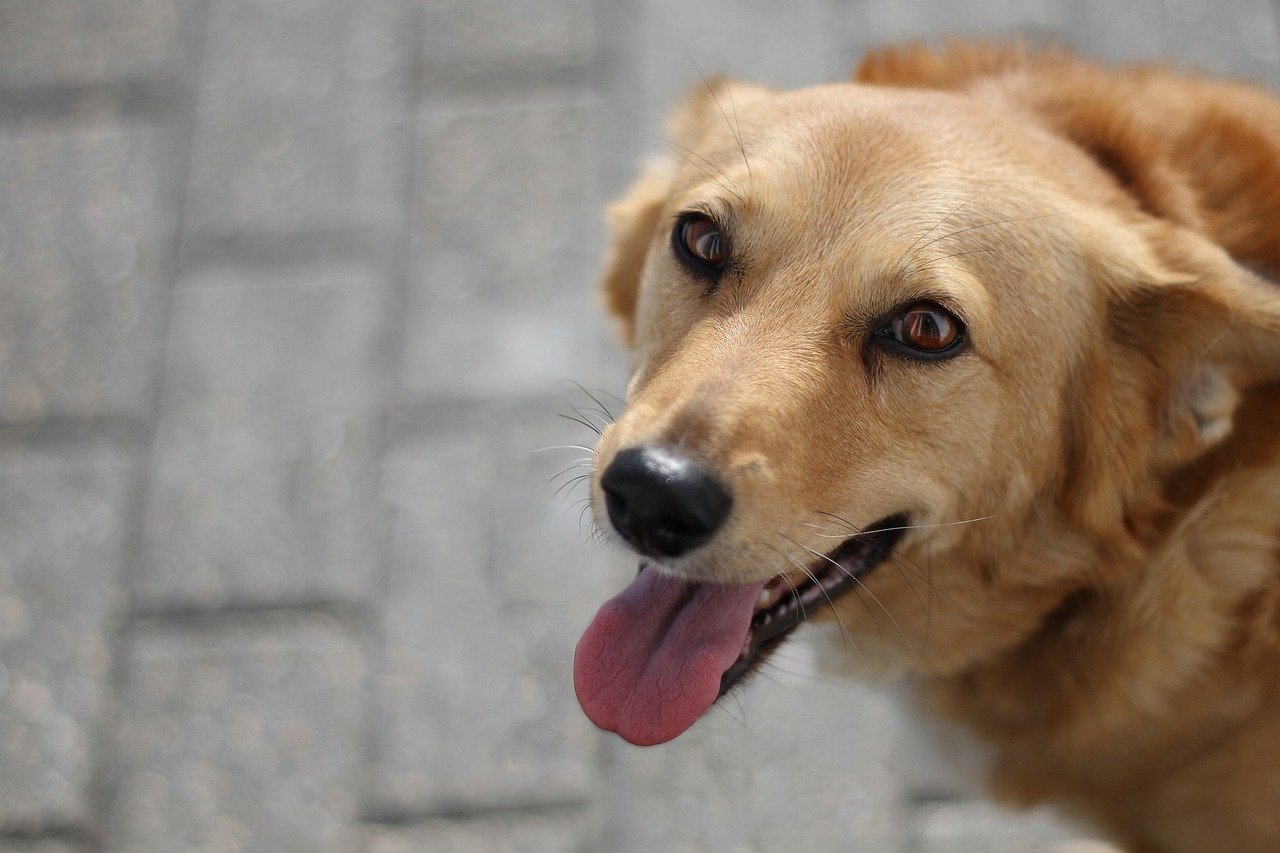
Understanding Senior Pet Stress
Recognizing the signs of stress in senior pets is crucial for ensuring their well-being, especially during the bustling holiday season. Unlike younger pets, senior animals often exhibit different indicators of stress, which can sometimes be subtle and easily overlooked. For instance, while a younger pet may express anxiety through hyperactivity or barking, a senior pet might become more withdrawn, show changes in eating habits, or even display signs of aggression. It's essential for pet owners to be vigilant and aware of these changes.
Common signs of stress in senior pets can include:
- Increased vocalization: If your pet is suddenly barking or meowing more than usual, it could be a sign of distress.
- Changes in appetite: A senior pet that suddenly refuses to eat or overeats may be experiencing stress.
- Excessive grooming: Over-grooming can indicate anxiety, leading to skin irritations or bald patches.
- Hiding or seeking isolation: If your pet is retreating to their favorite hiding spot more often, it might be their way of coping with stress.
- Changes in sleep patterns: Senior pets may sleep more or less than usual when they are feeling anxious.
Understanding these signs is the first step in providing the necessary support for your furry friend. Just like humans, pets can experience a range of emotions, and the holidays can amplify feelings of anxiety due to changes in their environment and routine. The hustle and bustle of holiday gatherings, loud noises from celebrations, and the presence of unfamiliar guests can all contribute to a pet's stress levels.
As a pet owner, it’s essential to observe your senior pet closely. Consider keeping a journal of their behavior during the holiday season to identify patterns or triggers that may cause stress. This proactive approach will not only help you understand your pet's needs better but also equip you with the knowledge to create a more comfortable environment for them. Remember, a happy pet makes for a happy home, especially during the festive season!
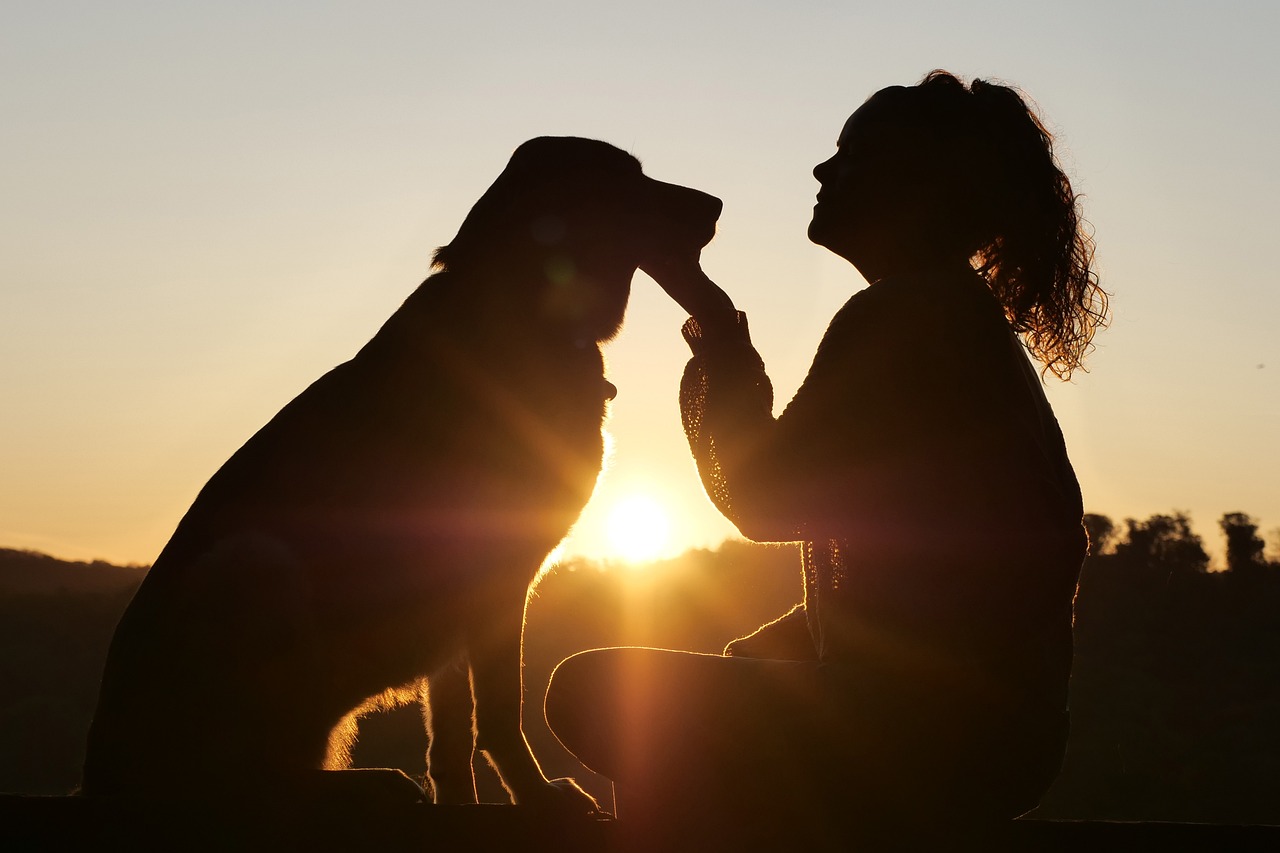
Creating a Calm Environment
Creating a serene atmosphere for your senior pet during the holiday season is crucial in helping them manage stress. Imagine your home as a cozy sanctuary, a safe haven where your furry friend can retreat when the hustle and bustle of the holidays becomes overwhelming. The first step is to assess the environment and identify potential stressors. Loud noises, unfamiliar scents, and sudden movements can all contribute to anxiety in senior pets. By taking proactive measures to minimize these disturbances, you can foster a more peaceful setting.
One effective way to reduce noise is by using soft background music or white noise machines. These can help drown out sudden loud sounds that might startle your pet. Additionally, consider creating a designated quiet room where your senior pet can escape to when they need a break. This space should be equipped with their favorite bedding, toys, and perhaps even a piece of your clothing to provide comfort and familiarity.
Another essential aspect of a calm environment is ensuring that your pet has access to cozy resting areas. Senior pets often experience joint pain or mobility issues, so providing them with soft, supportive bedding can make a world of difference. You might want to invest in orthopedic beds that cater specifically to their needs. Placing these beds in low-traffic areas of your home can also help your pet feel more secure, away from the chaos of holiday gatherings.
It's also vital to keep their routine as consistent as possible. Senior pets thrive on predictability, so try to maintain their usual schedule for feeding, walks, and playtime. When they know what to expect, it can significantly reduce anxiety. Even small changes, like introducing new guests or rearranging furniture for holiday decorations, can disrupt their sense of security.
In addition to minimizing disruptions, consider creating a safe space that allows your senior pet to retreat when feeling overwhelmed. This could be a cozy corner with their favorite blanket or a crate where they feel secure. You can enhance this space by adding familiar items such as toys, treats, and even a calming pheromone diffuser, which can help soothe their nerves.
Ultimately, the goal is to create an environment where your senior pet feels safe, comfortable, and loved. By being mindful of their needs and making small adjustments to your home, you can ensure that they enjoy the holiday season just as much as you do.
Minimizing Holiday Disruptions
As the holiday season approaches, our homes often transform into bustling hubs of activity, filled with laughter, decorations, and the delightful chaos of family gatherings. While this festive atmosphere brings joy to many, it can be a source of stress for our senior pets. Just like us, they thrive on routine and familiarity, and any disruption can lead to anxiety. To keep your furry friends feeling safe and secure, it’s essential to take proactive steps to minimize these disruptions.
One effective way to maintain a sense of normalcy is to stick to your pet's regular schedule as closely as possible. This includes their feeding times, bathroom breaks, and play sessions. For instance, if your dog is used to a morning walk at 8 AM, try to keep that time consistent, even if you have guests arriving. If you anticipate a busy day, consider scheduling your pet's activities around the gatherings rather than in the middle of them. This way, they won’t feel left out or overwhelmed.
Another strategy is to create a holiday schedule that incorporates your pet's needs. You might want to prepare a simple timetable that outlines when your pet will eat, exercise, and have quiet time. Here’s an example of how you could structure it:
| Time | Activity |
|---|---|
| 8:00 AM | Morning Walk |
| 9:00 AM | Breakfast |
| 12:00 PM | Quiet Time |
| 3:00 PM | Afternoon Play |
| 6:00 PM | Dinner |
| 8:00 PM | Evening Walk |
Additionally, consider setting up a cozy retreat for your senior pet. This can be a quiet room or a specific corner in your home where they can escape from the holiday hustle and bustle. Make it inviting with their favorite blanket, toys, and perhaps even some calming pheromone diffusers. By providing a safe haven, you allow your pet the option to retreat when they feel overwhelmed, which is crucial during this lively time of year.
Lastly, be mindful of the noise levels in your home. Holiday music, laughter, and the sounds of cooking can be quite loud and overwhelming for sensitive ears. If possible, keep the volume down, and encourage guests to be gentle and calm around your senior pets. You might also consider using white noise machines or calming music designed specifically for pets to help mask sudden loud noises and create a more soothing environment.
By taking these simple yet effective steps to minimize disruptions during the holiday season, you can help your senior pets feel more at ease. Remember, a little planning goes a long way in ensuring that the holidays are enjoyable not just for us, but for our beloved furry family members as well.
Maintaining Consistent Feeding Routines
When the holiday season rolls around, the hustle and bustle can throw a wrench into the daily routines that our senior pets have come to rely on. Just like us, pets thrive on routine, and any sudden changes can lead to confusion and stress. Maintaining a consistent feeding schedule is one of the most effective ways to help your furry friend feel secure and comfortable during this chaotic time. Imagine how disoriented you would feel if your meals were suddenly served at odd hours—your pet feels the same way!
To ensure that your senior pet remains calm and collected, it’s essential to stick to their usual meal times as closely as possible. This consistency not only helps in managing their anxiety but also supports their digestive health. Senior pets often have more sensitive stomachs and can be prone to digestive issues, so keeping their feeding routine stable is crucial. Here are some tips to help you maintain that routine:
- Set a Schedule: Try to feed your pet at the same times each day. If your pet is used to breakfast at 8 AM and dinner at 6 PM, do your best to stick to these timings, even if you have guests over.
- Prepare Ahead: If you know you'll be busy with holiday preparations, consider pre-measuring your pet's meals. This way, you can quickly feed them without disrupting your schedule.
- Communicate with Guests: If you have family and friends visiting, kindly ask them to respect your pet's feeding schedule. You can even have someone else help with feeding if you're caught up with festivities.
Additionally, consider the type of food you are providing. Senior pets often require a different diet than their younger counterparts due to changes in metabolism and health needs. Consult with your veterinarian to ensure that your pet is receiving the appropriate nutrition during the holiday season. You might even want to prepare some special meals that are both festive and suitable for their dietary requirements.
While it’s tempting to share holiday treats with your pet, it’s important to remember that not all human foods are safe for them. Stick to their regular food, and if you want to give them a little something extra, opt for healthy treats specifically designed for senior pets. Keeping their diet consistent will not only help reduce stress but will also keep them healthy and happy during the holidays.
Providing Safe Spaces
Creating a sanctuary for your senior pet during the holiday chaos is not just a luxury; it's a necessity. Think of it as building a cozy fortress where your furry friend can retreat and recharge. Senior pets, much like us, can feel overwhelmed by the hustle and bustle of holiday gatherings, loud noises, and unfamiliar faces. They thrive in environments that offer security and comfort. So, how can you create these safe spaces? Let’s dive into some practical tips!
First, choose a quiet area in your home that is away from the commotion. This could be a spare bedroom, a corner of your living room, or even a cozy nook in your basement. Make sure this space is equipped with their favorite items, such as a soft bed, blankets, and perhaps a few cherished toys. The familiar scents and textures will help them feel more at ease. You might also consider adding a calming pheromone diffuser to the room. These diffusers can mimic natural calming pheromones that help reduce anxiety in pets.
It's also important to ensure that this space is easily accessible. Senior pets may have mobility issues, so placing their safe zone on the same floor as the main living areas can prevent unnecessary stress from climbing stairs. Additionally, keep the area free from hazards—remove anything that could potentially harm them, such as small decorations or cords that they might trip over.
Another effective way to enhance their safe space is to create a visual barrier. This could be as simple as using a baby gate to limit their exposure to high-traffic areas or using curtains to block out bright lights and distractions. Remember, the goal is to create a calm atmosphere where your pet feels secure and protected.
Lastly, encourage your guests to respect your senior pet's need for space. Inform them beforehand that your furry friend might not want to interact with everyone. This way, your pet can enjoy the holiday without the added pressure of socializing. By implementing these tips, you’ll not only help your senior pet feel more comfortable but also ensure they can enjoy the festive season alongside you.
- How do I know if my senior pet is stressed? Look for signs such as excessive barking, hiding, changes in appetite, or unusual aggression. These behaviors can indicate that they are overwhelmed.
- Can I use calming products for my pet? Yes! Products like calming treats, pheromone diffusers, and anxiety wraps can help ease stress in senior pets.
- What types of safe spaces are best for senior pets? A quiet, comfortable area with their favorite bedding, toys, and minimal noise is ideal. Make sure it's easily accessible and free from hazards.
- How can I help my pet adjust to holiday guests? Gradually introduce guests to your pet and allow them to approach at their own pace. Ensure your pet has a safe space to retreat if they feel overwhelmed.
Socialization Tips for Senior Pets
Socializing senior pets can feel like a delicate dance, especially during the bustling holiday season. It's essential to approach this with care and understanding, as older pets may not handle the excitement of gatherings like they used to. Think of it as inviting a grandparent to a lively family reunion; you want to ensure they feel included but not overwhelmed. Here are some effective strategies to help your furry friends navigate social situations smoothly.
First and foremost, gradual introductions are key. When guests arrive, allow your senior pet to observe from a distance before any close encounters. This helps them acclimate to the new environment without feeling cornered. You might say, “Hey, buddy, take your time! No rush!” This simple approach respects their comfort zone while also letting them know they’re part of the fun.
Another important aspect to consider is the environment. Create a designated area where your pet can retreat if they feel overwhelmed. This space should be cozy and equipped with their favorite blankets and toys. It’s like having a little sanctuary amid the holiday chaos. Make sure this area is easily accessible, so they can sneak away whenever they need a break.
Furthermore, it's crucial to monitor interactions with other pets and children. Not all pets are as sociable as they once were, and that’s perfectly okay. When introducing other animals, do so slowly and in a controlled manner. A good rule of thumb is to keep initial encounters brief and positive. For instance, if your senior dog seems uneasy around a boisterous puppy, consider separating them with a baby gate or a leash until they’re more comfortable.
Lastly, positive reinforcement plays a vital role in building your pet’s confidence. Reward calm behavior with treats or praise when they interact positively with guests. This not only encourages good behavior but also helps them associate socialization with pleasant experiences. Think of it as giving them a little pat on the back for being brave!
By following these tips, you can help your senior pets enjoy the holiday season without added stress. Remember, it’s all about making them feel safe, secure, and loved. After all, the holidays are a time for joy, and that includes our beloved furry companions!
- How can I tell if my senior pet is stressed during social gatherings?
Look for signs such as hiding, excessive panting, or avoiding interaction. If they seem uncomfortable, give them space. - Is it okay to introduce my senior pet to new animals during the holidays?
Yes, but do so gradually and monitor their comfort level. Keep initial interactions short and positive. - What should I do if my pet shows signs of anxiety?
Create a safe space for them to retreat to and consider consulting a veterinarian if anxiety persists.
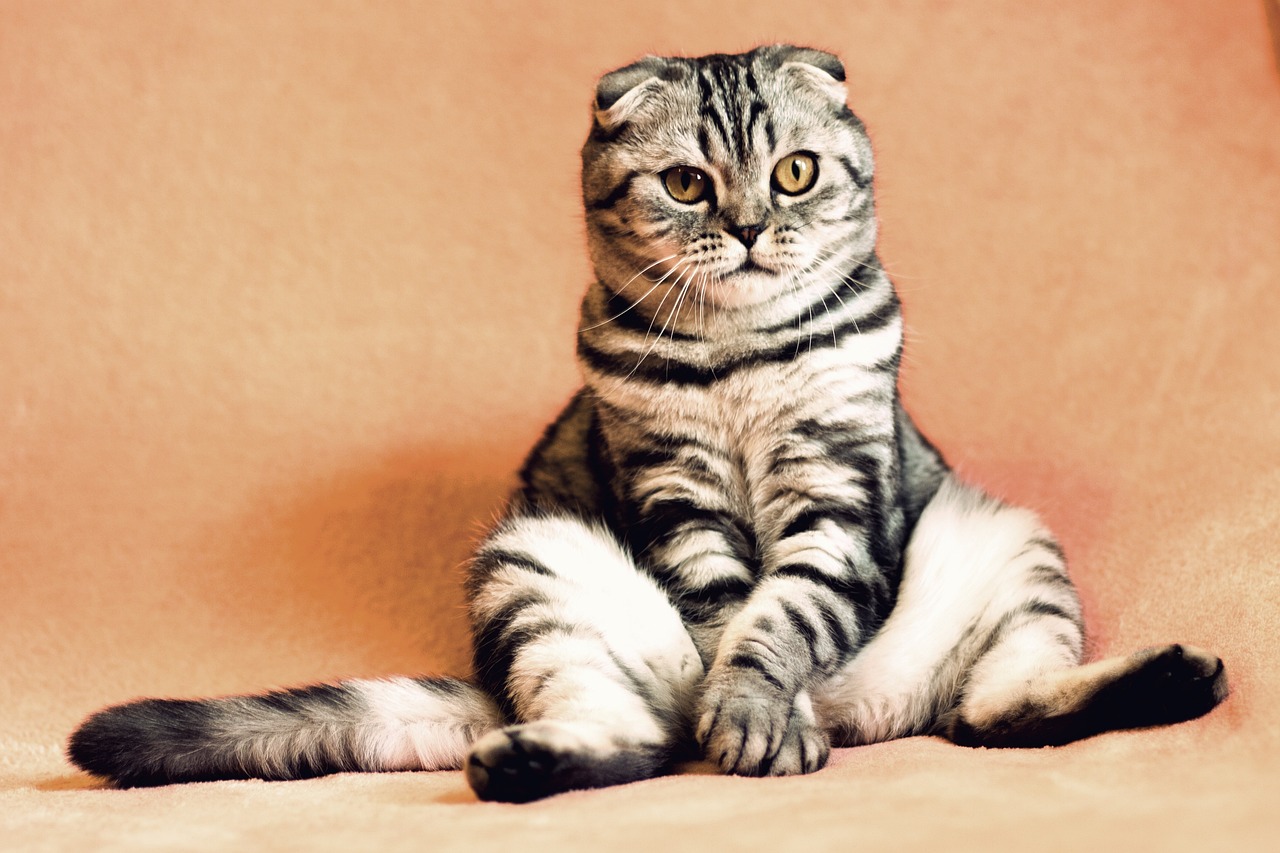
Engaging Activities for Relaxation
As the holiday season approaches, it’s essential to keep our senior pets engaged in activities that promote relaxation and comfort. Just like us, our furry friends can feel overwhelmed by the hustle and bustle of the festivities. Therefore, incorporating gentle activities into their daily routine can help alleviate stress and keep them feeling their best. Think of it as providing a soothing balm for their weary souls, a way to help them unwind amidst the chaos.
One of the most effective ways to engage senior pets is through gentle exercise routines. Light walks around the neighborhood or even in the backyard can do wonders for their mood. Imagine your dog, tail wagging, enjoying the fresh air while taking in all the delightful scents of the season! However, it’s important to tailor these activities to their energy levels. For instance, if your pet tires easily, consider shorter, more frequent walks instead of one long outing. This not only keeps them active but also prevents fatigue, allowing them to enjoy the experience without feeling overwhelmed.
In addition to gentle exercise, interactive toys and puzzles can be fantastic for mental stimulation. These toys are designed to challenge your senior pet’s mind while keeping them engaged. Picture this: your cat, pawing at a puzzle toy, figuring out how to get the treats hidden inside. It’s not just play; it’s a workout for their brain! Look for toys that are easy to manipulate and safe for older pets. This way, they can enjoy the challenge without the risk of injury.
Moreover, creating a routine that incorporates these activities can provide a sense of stability for your senior pet. Just like we thrive on routine, our pets do too! Regularly scheduled playtime or walks can help them feel secure and less anxious during the holiday season. You might even consider setting aside a specific time each day for interactive play or gentle exercise, making it a special bonding moment between you and your furry friend.
Lastly, don’t underestimate the power of calming activities such as gentle massages or quiet cuddle time. These moments of affection can significantly reduce stress and help your pet feel cherished. Just as a warm hug can ease our worries, a gentle rub behind the ears or a soft stroke down their back can work wonders for their anxiety levels. So, grab a cozy blanket, snuggle up with your pet, and enjoy some peaceful moments together.
- What are some signs that my senior pet is stressed during the holidays? Look for changes in behavior such as excessive barking, hiding, or changes in eating habits.
- How much exercise should I give my senior pet? Aim for short, gentle walks that suit their energy levels, typically around 10-15 minutes, depending on their health condition.
- Are there specific toys recommended for senior pets? Yes! Look for toys that are easy to grip and manipulate, and consider puzzle toys that stimulate their minds without being overly challenging.
- When should I consult a vet regarding my pet's stress? If you notice persistent signs of stress or behavioral changes that do not improve with your efforts, it’s wise to seek professional advice.
Gentle Exercise Routines
When it comes to our beloved senior pets, maintaining their physical health is just as important as keeping their mental well-being in check. Gentle exercise routines can be a game-changer during the holiday season, providing a perfect balance of activity without overwhelming them. Think of it as a warm hug for their bodies—something that keeps them moving but doesn't push them too far. So, what are some effective ways to engage your senior pet in gentle exercise?
First off, consider short, leisurely walks around the neighborhood. These walks should be tailored to your pet's ability. If your furry friend tends to tire quickly, aim for shorter distances but increase the frequency of these strolls. This way, they get the benefits of exercise without overexertion. Remember, it’s not about how far you go; it’s about creating a routine that they enjoy. You might even find that they look forward to these little adventures, wagging their tails in excitement as they step outside.
Another great option is to engage them in light play. Think about activities that stimulate their minds while allowing them to move at their own pace. For example, tossing a soft toy a short distance can encourage them to fetch without the risk of straining themselves. You can also use interactive toys that promote gentle movement; these toys can be especially engaging for senior pets who may not be as sprightly as they once were.
Additionally, incorporating stretching exercises into your routine can greatly benefit your senior pet. Just like us, pets can experience stiffness in their joints, especially as they age. Gentle stretching can help alleviate this discomfort. You can guide them through simple stretches by encouraging them to reach for a treat or a favorite toy. This not only helps them stay limber but also strengthens your bond as you engage in this nurturing activity together.
To further enhance their exercise experience, consider setting up a small indoor obstacle course using soft pillows or low hurdles. This can be a fun way to encourage them to navigate through various challenges without putting too much strain on their bodies. Keep in mind that safety is paramount, so ensure that the environment is free of hazards that could lead to slips or falls.
In conclusion, gentle exercise routines are essential for keeping senior pets healthy and happy during the holiday season. By incorporating leisurely walks, light play, stretching, and safe indoor activities, you can ensure that your furry companions remain active while enjoying the festive spirit. Remember, the key is to keep it fun and stress-free, allowing them to engage at their own pace. After all, a happy pet makes for a joyful holiday season!
- How often should I exercise my senior pet?
It’s best to aim for short sessions of exercise several times a day, rather than one long session. This helps prevent fatigue and keeps them engaged. - What types of toys are best for senior pets?
Look for soft, easy-to-handle toys that encourage gentle play. Interactive toys that stimulate their mind without requiring too much physical effort are ideal. - How can I tell if my pet is overexerted?
Watch for signs of fatigue such as excessive panting, reluctance to continue, or any signs of discomfort. Always prioritize their comfort over activity.
Interactive Toys and Puzzles
When it comes to keeping our senior pets engaged and relaxed, can be a game-changer. These specially designed toys not only provide mental stimulation but also help in relieving stress, making them perfect companions during the bustling holiday season. Imagine your furry friend, tail wagging, as they figure out how to retrieve a treat from a puzzle toy—it's like watching a little detective at work!
Senior pets, just like us, can benefit greatly from activities that challenge their minds. As they age, their cognitive functions may decline, leading to confusion or anxiety, especially amidst the chaos of holiday festivities. Interactive toys can serve as a fantastic way to keep their minds sharp. For instance, toys that require them to push, pull, or manipulate objects to access hidden treats can stimulate their problem-solving skills.
Here are some types of interactive toys that can be especially beneficial for senior pets:
- Puzzle Feeders: These toys can make mealtime more engaging. They require pets to solve a puzzle to get to their food, which can slow down their eating and keep them entertained.
- Treat-Dispensing Balls: These balls release treats as your pet rolls them around, encouraging physical activity while rewarding them for their efforts.
- Snuffle Mats: These mats mimic the experience of foraging for food. Hiding treats in the fabric encourages pets to use their noses, providing both mental and sensory stimulation.
Moreover, it's essential to choose toys that are suitable for your senior pet's physical abilities. Look for options that are easy to manipulate and safe to chew on. The last thing you want is for your pet to struggle with a toy that’s too complex or, worse, one that could harm them. Always supervise your pet during playtime to ensure they are using the toy safely and effectively.
Incorporating these interactive toys into your pet's routine can also create a wonderful bonding experience. Spend time with your pet as they engage with these toys, offering encouragement and praise. This not only boosts their confidence but also strengthens your relationship. Think of it as a fun game that you both can enjoy together, making the holidays a little brighter for both of you!
In conclusion, investing in interactive toys and puzzles is a fantastic way to keep your senior pet mentally stimulated and relaxed during the holiday hustle and bustle. By providing them with engaging activities, you can help alleviate their stress and ensure they enjoy the festive season just as much as you do.

Recognizing When to Seek Help
As a loving pet owner, it's essential to be attuned to your senior pet's emotional and physical well-being, especially during the hustle and bustle of the holiday season. While some stress is natural, there are specific signs that indicate your furry friend might need professional help. If you notice significant changes in behavior, such as increased aggression, excessive hiding, or a sudden loss of appetite, these could be red flags. It's crucial to remember that senior pets may not express their discomfort in the same way younger animals do. Instead, they might withdraw or exhibit subtle signs of distress.
One of the most telling indicators of a pet in distress is a change in their usual habits. For example, if your senior dog, who typically loves to snuggle, suddenly avoids you or refuses to engage in their favorite activities, it might be time to take action. Additionally, if your cat starts to groom excessively or stops grooming altogether, these behaviors could signal underlying anxiety or health issues. Always trust your instincts; if something feels off, it probably is.
To help you identify when it’s time to consult a veterinarian or a pet behaviorist, here are some common signs to watch for:
- Changes in Eating Habits: A sudden decrease or increase in appetite can indicate stress or health issues.
- Excessive Vocalization: If your pet starts barking, howling, or meowing more than usual, it might be a sign of anxiety.
- Destructive Behavior: Chewing, scratching, or other destructive actions can be a cry for help.
- Physical Symptoms: Look out for signs like trembling, pacing, or excessive panting, which may indicate heightened stress levels.
Recognizing these signs early can make a significant difference in your pet's quality of life. If you notice any of the above behaviors persisting for more than a few days, it’s best to consult with a professional who can assess your pet's needs. They can offer tailored advice, recommend behavioral therapies, or even prescribe medications if necessary.
In conclusion, being proactive about your senior pet's mental health during the holidays is vital. By staying observant and responsive to their needs, you can ensure they enjoy the festive season just as much as you do. Remember, seeking help is a sign of strength, not weakness. Your pet relies on you to advocate for their well-being, so don't hesitate to reach out for support when needed.
Here are some common questions pet owners have regarding senior pet stress and when to seek help:
- What are the most common signs of stress in senior pets? Look for changes in behavior, eating habits, and increased vocalization.
- How can I help my senior pet relax during the holidays? Create a calm environment, maintain routines, and provide safe spaces for them.
- When should I consult a veterinarian? If your pet shows persistent signs of stress or behavioral changes lasting more than a few days.
- Can stress lead to health problems in senior pets? Yes, prolonged stress can exacerbate existing health issues and lead to new ones.
Frequently Asked Questions
- What are the common signs of stress in senior pets?
Common signs of stress in senior pets include excessive barking, hiding, changes in appetite, and increased clinginess. You might also notice them being more withdrawn or showing signs of anxiety, like pacing or restlessness.
- How can I create a calm environment for my senior pet during the holidays?
To create a calm environment, consider reducing noise levels, providing cozy resting areas, and maintaining a consistent routine. You can also use calming music or pheromone diffusers to help soothe their nerves.
- What strategies can I use to minimize holiday disruptions for my senior pet?
Minimizing holiday disruptions can be achieved by keeping their daily routines consistent, limiting the number of guests, and providing quiet spaces where they can retreat if they feel overwhelmed. It's all about making them feel secure and comfortable.
- Is it important to maintain a consistent feeding routine for senior pets during the holidays?
Absolutely! Keeping their meal times regular is crucial for reducing anxiety. Even amidst the holiday festivities, sticking to their usual feeding schedule can help them feel more at ease.
- What are some engaging activities I can do with my senior pet to help them relax?
Gentle exercises like short walks or light play are great for relaxation. Additionally, interactive toys and puzzles designed for senior pets can provide mental stimulation and keep them engaged, which is beneficial during busy times.
- When should I seek professional help for my stressed senior pet?
If your senior pet's stress seems to be escalating or if they display severe anxiety symptoms, it might be time to consult a veterinarian or a pet behaviorist. They can provide tailored advice and support to help your furry friend cope better.


